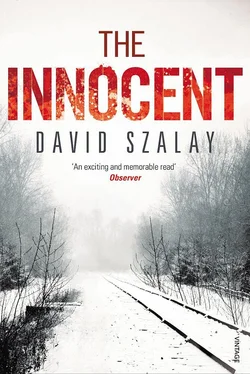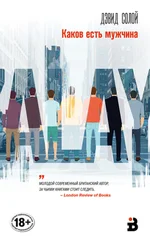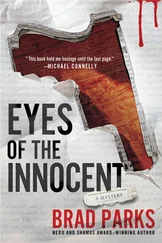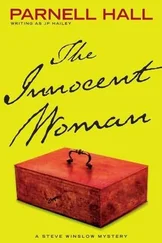‘Nothing.’
Ivan looks at him quizzically for a moment. Then he presses on, telling them proudly about the modern bathhouse, the underfloor heating, the dining room panelled in Karelian pine. ‘We’ll all drive down there one weekend this autumn!’ he says. ‘We’ll put a hunting party together. Shoot some duck. How about that, Shurik?’
Aleksandr Ivanovich smiles and shrugs. ‘Sure …’ he says.
‘When do you return to Leipzig, Aleksandr Ivanovich?’ Spiridon enquires politely.
‘End of September.’
‘For your final year, is it?’
‘M-hm.’
‘And how do you like Germany?’
They are all in Ivan’s flat to watch the opening ceremony of the Olympic Games on the colour television. Aleksandr Ivanovich, home from Leipzig in his jeans, evinces a vague superiority to his present surroundings. In Munich, the opening ceremony is under way. Phalanxes of athletes jog forward on the track with huge flags. There is much talk of forgiveness, of progress, of peace – of how this is not 1936 – and a flock of white doves is unnetted into the stadium sky.
‘And was there much excitement in the DDR about the Games?’ Spiridon is still putting slightly obsequious questions to Aleksandr Ivanovich.
‘No. Not at all,’ he says. ‘They’re not happy about it, actually. I think they’re hoping something bad’s going to happen.’ Spiridon looks shocked. ‘Like what?’ he says. Aleksandr Ivanovich says, ‘I don’t know,’ and moves off to look for someone more interesting. Watching his nephew now, Aleksandr thinks of the first time that he saw him, of the night twenty-four years earlier when he fumbled open the front door in the small hours to see a lad of about twelve standing there with the nightwatchman from downstairs. ‘Katerina Ivanovna’s having the baby,’ he said. He was from one of the other families who lived in Ivan’s flat – small, round-skulled, his head shaved. Sergey was his name. He looked very pale. They all did in the white incandescence of the nightwatchman’s hissing kerosene lamp.
‘Is everything alright?’ Aleksandr said.
‘I suppose so.’
‘When did it start?’
Sergey just shrugged.
‘Wait here. I’ll come back with you.’
Zalesky’s mother was standing in the hall. ‘What is it?’ she whispered.
‘Nothing. Don’t worry.’
Still asleep, Irina mumbled the same question. ‘It’s started,’ he said. ‘I’m going over there. Do you want to come?’
‘Mn.’
For a few seconds she did not move and he said, ‘You’d better hurry up – one of the kids from Vanya’s place is waiting for us.’
She tutted, and sighed, and he heard her slowly sit up. ‘You’d better hurry up,’ he said. She said nothing. ‘You’d better …’
‘I know!’ She pulled her nightdress over her head; there were pink imprints on her skin where she had slept on its folds. She was trying to smoke and dress at the same time – with a cigarette in her mouth she was fastening her brassiere; then she transferred it quickly from one hand to the other as she put her arms through the short sleeves of her shirt. She left it in the ashtray for a few seconds while she put her skirt on.
‘Alright?’
She nodded, pulling her shoes over her heels with a hooked finger.
He spent that night sitting on the floor in the stuffy hall of Ivan’s flat, perspiring and sleepy. He thinks of the loud shuddering noises he heard from Ivan’s room, and of how it seemed incredible to him that it was Katya making them. There was no trace of her normal voice in them. They did not even sound human. They were more like the violent protestations of a ship’s hull.
He was woken from a light sleep by a short, tremulous waul, and thought involuntarily of Lear’s words – ‘ When we are born, we cry that we are come to this great stage of fools …’ Though the windowless hall was dark, under the doors were sharp lines of daylight. There was another waul. Then a peculiar quiet. Then voices talking. He could not hear what they were saying. He was very thirsty. Some time later – it might have been as much as an hour, he might have slept some more – Ivan suddenly opened the door. He looked more worried, more harassed, than he had until then. In the sunlight that poured into the hall through the open door Aleksandr saw how tired he was. ‘Come in Sasha,’ he said, without smiling. Squinting, he went into the room. Katya looked surprisingly well, though pale, some of her hair still stuck to her forehad. The windows were all wide open …
He thinks of the walk home, the sun hot, the trams full. He was worried that he had offended Ivan, that he had not seemed pleased – or not enough – when Katya told him they were naming their son after him. ‘What should we do?’ It was the first thing Irina had said since they left Ivan’s flat. They were on the Plotinka. He laughed. A tired, sour laugh. ‘I need to sleep,’ he said, and a second later saw that she was no longer walking next to him. She had stopped. ‘Irina …’ She shook her head. The heat of the sun was sweatily unpleasant. The shine of the water, even of the cobbled street, hurt his eyes. She started to walk away. He tried to take hold of her arm, but she immediately pulled it free and stepped out into the street. He overtook her at the foot of the steps on the other side of the dam, where the water tumbling through the sluice-gates was very loud. ‘Is it because I said I need to sleep?’ he shouted. ‘I’m tired. I don’t want to do anything. What do you want to do? Aren’t you tired? I have to sleep.’ He was standing in front of her, with the sun in his eyes …
And he thinks of how she entered their room, some hours later. He was sitting at the table, vacant with exhaustion, waiting for her. He had only slept for two hours, and when he woke she was still not there. He heard the front door of the flat open and shut. Then Irina’s voice – sounding fine, vivacious – and the strong, hoarse voice of Zalesky’s mother. He was not able to hear what they were saying. There was some laughter. Then Irina entered their room. Without saying a word, she shut the door, and lay face down on the divan. For a minute, feeling wretched, he watched her. Then he stood up and sat down next to her. ‘What is it?’ he said, putting his hand on her hip. ‘Irishka, what is it?’ She said nothing. And, of course, he knew what it was.
For Aleksandr Ivanovich, he thinks, that night, that morning – of which he has such vivid, living memories – are merely part of the hinterland that precedes memory. A hinterland mapped out in old photographs, of people he knows, not as he knows them. Young-faced. Playing other parts. A half-familiar setting, missing its most important element. Once, he pointed to a picture of Irina and said, ‘Who’s that?’
I DID NOT expect her to telephone me, and soon stopped even hoping that she would, so I was surprised when one morning, perhaps two weeks later – it was the week that Zhdanov died – I picked up the phone and it was her. She said she was phoning from the lobby of the Iset hotel and wanted to see me. I walked over from the MGB offices, and found her waiting in the sunshine outside the hotel. A symbol of Sverdlovsk’s post-war status, it towered over the wooden houses in the traditional Urals style that then lined Lenin Prospekt.
She had sounded nervous on the phone, and was nervous when we met. She did not know what to expect of me, I suppose. And what did I expect, as I walked over to the Iset that morning? I had her journal with me, and also some photographs that were found in her house. I took her to lunch in the hotel. The journal was a thick blue volume, a sort of heavy exercise book. On the front she had written ‘Nadezhda Filippovna Podlubnaya, 1932’. It was tied shut with a strip of blue satin. She took the photographs. However, she said she did not want the journal. ‘Are you sure?’ I said.
Читать дальше












